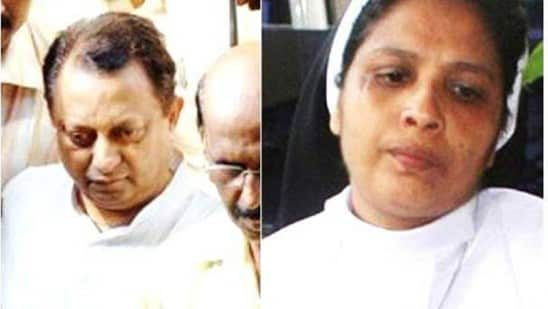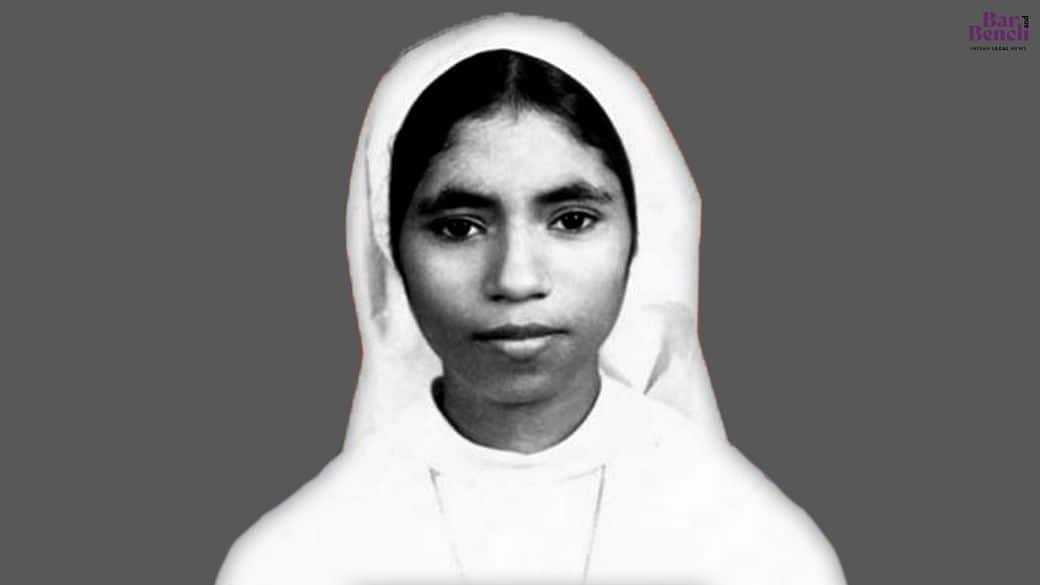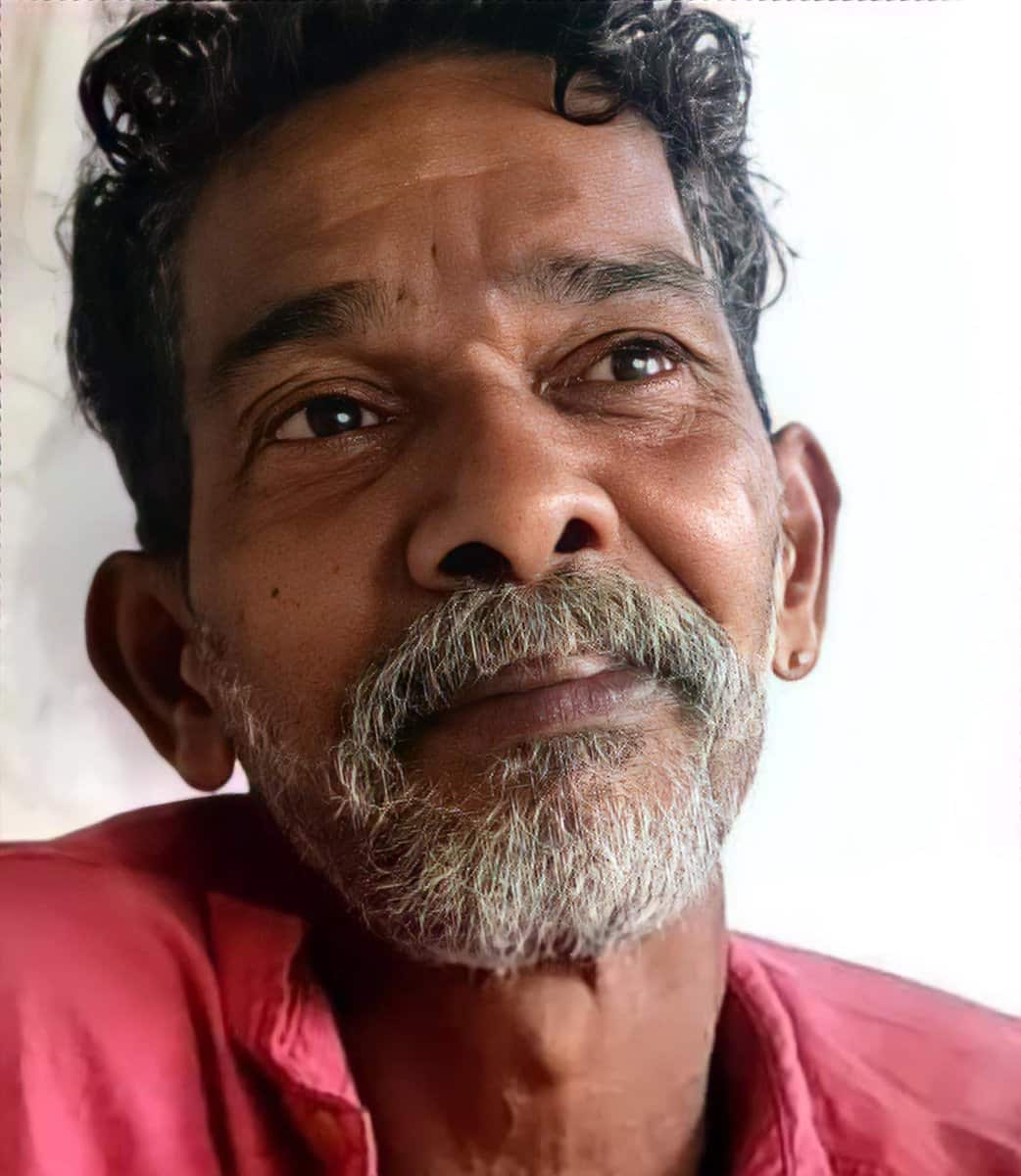More than 28 years after Sister Abhaya - a 19-year-old nun - was found dead in a well in a convent in the south Indian state Kerala, her brother Biju Thomas sounded relieved.
“There was immense pressure from the Church and political leaders to nullify the case, but it was God’s intervention. I am happy that justice has been delivered,” he told local television channels.
“Justice has been done to my sister, though it is delayed.”
The first accused in the case - 71-year-old Father Thomas Kottoor, a Vicar who taught Sister Abhaya psychology in a church-run college – was awarded a double life-imprisonment for trespassing into the convent and murdering her.
Another accused, Sister Sephy, was found guilty of the murder and destruction of evidence. She has been sentenced to life imprisonment. The Central Bureau of Investigation's (CBI) special court has also imposed hefty fines on both the accused.
On Tuesday when the court declared the two guilty, Fr Kottoor maintained his innocence and said: "Everything will happen according to God’s plan. There’s nothing to fear”.
Sr Sephy broke down in the courtroom but did not comment.

Another priest – Father Jose Poothrikkayil – was also an accused in the case and the CBI had charged him with similar charges, but the court discharged him for lack of evidence. He refuted all allegations, including claims that he was in a "compromising position" with the other two accused.
However, the Catholic Church in Kerala said that the allegations against the priest and the nun were "unbelievable", though it accepted court's verdict.
28 years - twists and turns
The 19-year-old Knanaya Catholic nun, a Year 12 student, was found dead in the well of Pius X Convent in the Kottayam district of Kerala on 27 March 1992.

The local police and its crime branch unit had termed the incident as suicide and wanted to close the case.
Even though the investigation was handed over to India's premier central agency, the CBI, it also filed three contradictory closure reports.
After the initial investigation in 1993 the CBI, too, had termed it a case of suicide. But the court refused to accept the report.
The second report concluded that it was a murder, but the agency wanted to close the investigation because it could not go any further for lack of evidence. The third report, filed by another CBI team in 2005, ruled out any other person's involvement in Sister Abhaya’s death.
However, as the court was reluctant to buy any of these arguments and ordered the CBI to form another team for investigation, it took a new direction.
Sixteen years after the incident, the CBI finally arrested Father Thomas Kottoor, Sister Sephy and Father Jose Poothrikkayil, in November 2008.
As per the CBI charge sheet, Sister Abhaya witnessed Father Kottoor, Father Poothrikkayil and Sister Sephy “in a compromising position” in the convent's kitchen in the early hours of the day.
Fr. Kottoor strangled Sister Abhaya and Sister Sephy hit her with the blunt side of an axe before the three accused dumped the body into the well. The CBI report said
Witnesses turned hostile; while a ‘thief’ stood firm
There were many twists in the case during the trial phase, with the accused approaching many courts in the country in a bid to stall the proceedings, as many witnesses also turned hostile.
The accused had undergone narco-analysis tests, and those reports were even believed to have been tampered with.
Only 49 out of the 177 witnesses were cross-examined in the court, but eight of the prosecution witnesses turned hostile during the trial.
However, the court relied heavily on the testimony of a former thief named “Adakka Raju.”
After seeing the photographs of the accused in newspapers, he voluntarily appeared before the CBI officers and described what he had witnessed on the day of the murder.

He deposed that he had gone to the convent to steal copper plate connected to the lightning arrester installed on the terrace. At that time, he saw two persons climbing the staircase on the rear side.
He identified one of them as Fr Kottoor.
Mr Raju was named “Adakka” Raju in the police report because he used to steal areca nuts, which is called adakka in the local Malayalam language.
After the two accused were found guilty, Raju told the media that he was offered bribes for changing his statement.
"I got offers of crores of rupees. But I did not take any money. I have two daughters. What happens if they are gone all of a sudden? I saw that child (Abhaya) like my daughter. Nobody is there in that family. Being in her father's position, I say she got justice. I am happy," he told TV channels.
He is being hailed as a hero on social media in India.
“Jesus, the thief who died with you on the cross, is the only one who stood firm, to witness your justice,” one of the leading poets in Malayalam – Balachandran Chullikkad – wrote on Facebook.
The hashtag #Adakkaraju has been trending on Facebook in the country.
Allegations "unbelievable," says the church
The Kottayam diocese of the Knanaya Catholic church issued a statement following the judgement, in which it said the allegations were still "unbelievable".
The death of Sister Abhaya was sad and unfortunate. The special CBI court has found that she was murdered by Fr Thomas Kottoor and Sister Sephy and awarded them life imprisonment. The allegations against them are unbelievable. However, we accept the court order. The accused persons have the right to go for an appeal against the order and prove their innocence,” the statement read.
Bishop Bosco Puthur, the head of Melbourne diocese of the Syro-Malabar Catholic Church based in Kerala, told SBS Malayalam that if the convicted had caused the death of Sr. Abhaya, they should be punished.
"As a law-abiding citizen, I respect the judgment of the court regarding Sr. Abhaya murder case. Justice demands that the cause of the tragic death of Sr Abhaya be found out. If the convicted have caused it, they should undergo punishment. At the same time, they still have the legal right to appeal to higher courts to prove their innocence. I hope and pray that truth prevails," Bishop Puthur said.

